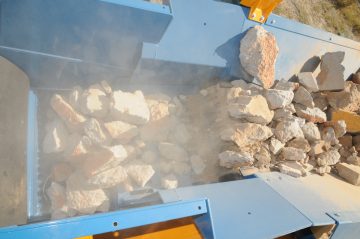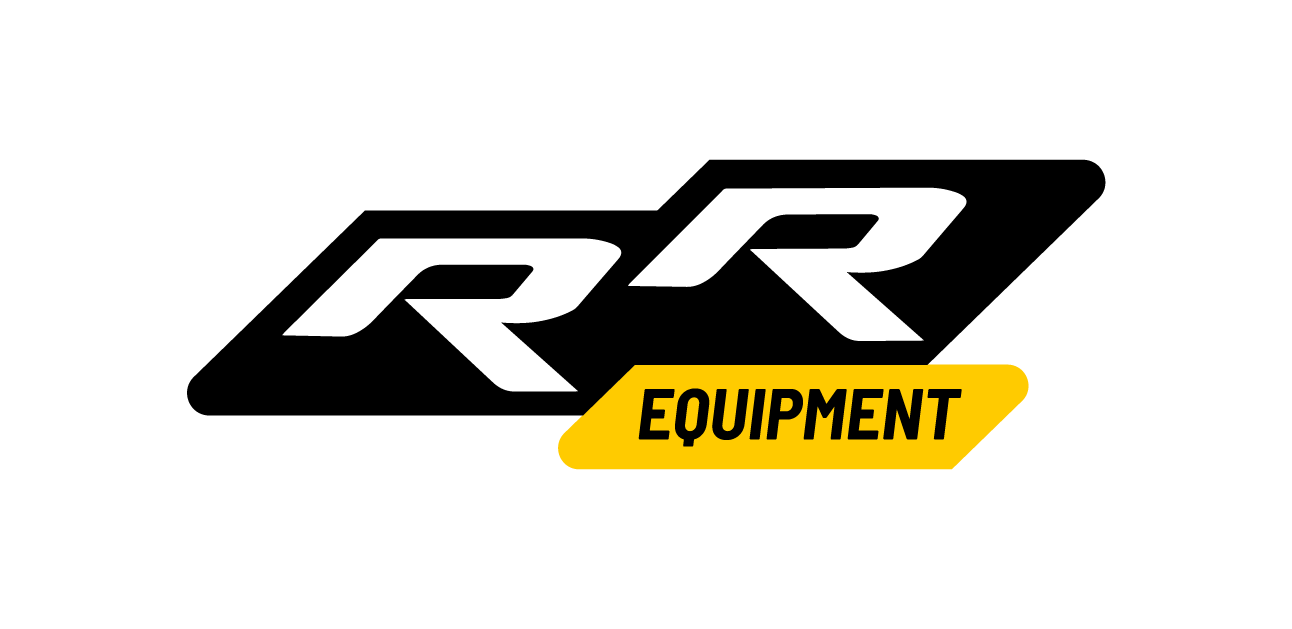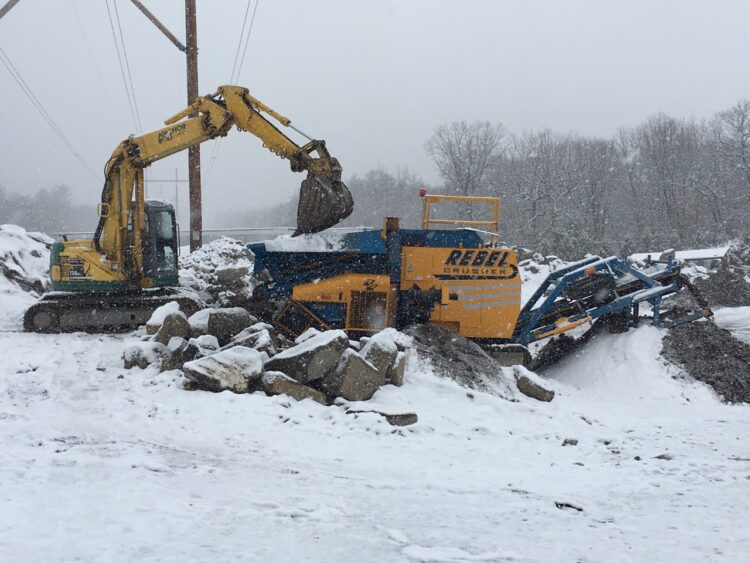Starting a concrete crushing business in 2025 can be a game-changing opportunity. With the growing demand for recycled materials in construction and infrastructure projects, entrepreneurs have a chance to tap into a lucrative market while contributing to sustainable building practices. By converting concrete, rock, and other materials into valuable aggregate, you can create a profitable business that aligns with modern environmental goals and industry trends.
This guide will help you navigate the essentials of starting a concrete crushing business, from understanding startup costs and purchasing the right equipment to developing effective strategies for success. Whether you’re looking to serve the construction industry, recycle materials for profit, or reduce landfill waste, this blog will provide the step-by-step knowledge you need to build a solid foundation for your business.
Ready to break into the business of crushing concrete? Let’s dive into the details that matter most.
What Is Involved in a Concrete Crushing Business?
Running a concrete crushing business involves much more than just breaking down materials. It’s a dynamic operation that requires planning, technical expertise, and the right equipment to succeed.
From sourcing raw materials like concrete and rock to transforming them into valuable aggregates, every step plays a role in building a profitable enterprise. Understanding these core responsibilities is critical to laying a strong foundation for your business.
Equipment Needed for a Profitable Crushing Business
The backbone of any successful concrete crushing business is the right equipment. Without the proper machines, efficiency and profitability can suffer, making it crucial to invest wisely.
Here are the essential pieces of equipment you’ll need:
Crushers
Crushers are the heart of the operation, responsible for breaking down concrete, rock, and other materials. There are several types of crushers to consider:
- Jaw Crushers: Ideal for primary crushing, these machines handle larger chunks of material and reduce them into manageable sizes.
- Cone Crushers: Used for secondary crushing, they deliver precise, high-quality aggregate by further refining the material.
- Impact Crushers: Best for producing finer aggregates or specific gradations, impact crushers are versatile and effective for recycling applications.
Conveyors
Conveyors play a critical role in moving materials efficiently between different stages of the crushing process. They transport raw materials to crushers, carry processed materials to screeners, and move sorted aggregates to stockpiles. High-quality conveyors reduce manual handling and ensure steady workflow, which minimizes downtime and labor costs. Choosing conveyors with adjustable speeds and durable belts is essential for adapting to different material types and volumes.
Screeners
Screeners are essential for separating crushed materials into different sizes to meet customer specifications. These machines ensure that oversized pieces are reprocessed while finished products are ready for immediate use or sale. High-capacity screeners with multiple deck options allow for greater flexibility and higher output, enabling you to meet varying demands across construction and landscaping industries. Screeners also enhance quality control, ensuring that your end products meet industry standards and customer expectations.
Magnets and Picking Stations
To maximize profitability, magnets and picking stations are used to sort and clean crushed materials. Powerful industrial magnets remove rebar, nails, and other metal debris from crushed concrete, ensuring your final product is free from contaminants. Picking stations provide a more hands-on approach, allowing workers to manually separate unwanted materials, such as wood or plastic, that may have slipped through other processes. These tools not only improve product quality but also help you meet recycling standards and generate additional revenue streams from salvaged materials.
Choosing the wrong equipment can cost you more in the long run. Simply put: It’s better to invest in machinery that aligns with your specific needs rather than opt for cheaper alternatives that won’t perform.
Finding the Right Location
Location is everything in the concrete crushing business. The site you choose will impact not only your ability to operate but also your profitability. Here’s what to consider:
- Zoning Regulations: Before settling on a location, check local zoning laws and permits. Crushing operations often have specific regulatory requirements regarding noise, dust, and environmental impact.
- Accessibility: Your site should be easy to access for material delivery and transportation of finished products. Proximity to major roads or highways can make logistics much easier.
- Land Size: Crushing operations require sufficient space for equipment, stockpiles, and trucks. A cramped site can lead to inefficiencies and operational headaches.
- Environmental Considerations: Be mindful of the surrounding environment. Sites near residential areas may face complaints due to noise and dust. Additionally, ensure the land is stable enough to support heavy equipment and stockpiled materials.
By carefully selecting your location and investing in the right equipment, you’ll set your business up for success and sustainability from day one.
Is Concrete Crushing a Profitable Business?
Concrete crushing offers a unique opportunity to turn waste into valuable products. By recycling concrete and rock into high-demand materials like aggregates, businesses can tap into a profitable and growing market.
Whether serving construction companies, road builders, or landscapers, the ability to transform raw materials into revenue makes concrete crushing a highly lucrative venture. For aspiring business owners, understanding the profit potential and market demand is essential before diving in.
Profit Margins and Costs
Starting a concrete crushing business requires upfront investment, but the potential profit margins can make it worthwhile. Here’s a breakdown of the key costs and considerations:
- Equipment: The largest initial expense will likely be purchasing the right equipment. Crushers, conveyors, screeners, and other machinery can range from $100,000 to over $1,000,000 depending on capacity and features. Leasing or financing options can help reduce upfront costs.
- Permits and Regulations: Crushing operations must comply with local, state, and federal regulations, including environmental impact assessments and zoning permits. Permit costs can vary widely but are a necessary investment to avoid costly fines or shutdowns.
- Staffing: While some machines are highly automated, you’ll still need skilled operators to manage the equipment and oversee operations. Depending on the scale of your business, this might involve hiring machine operators, maintenance technicians, and administrative staff.
- Ongoing Expenses: Don’t forget maintenance, fuel, and utility costs, which can add up quickly. Ensuring your equipment is well-maintained can reduce long-term expenses and downtime.
The good news? Once your business is up and running, profit margins are typically strong. High-quality aggregate can fetch premium prices, especially in regions with a robust construction industry. By optimizing efficiency and minimizing waste, you can maximize your return on investment.
Market Demand and Opportunities
Concrete crushing businesses thrive in markets with high demand for recycled materials. Here are some of the key opportunities:
- Construction and Road Building: Builders and contractors rely on crushed concrete and rock for foundations, roadbeds, and fill material. The demand for high-quality aggregate is consistently strong in both urban and rural areas.
- Landscaping Industry: Landscapers use crushed stone for projects like retaining walls, pathways, and decorative features. Offering a range of sizes and grades can help you cater to this diverse market.
- Environmental Benefits: Recycling concrete and rock reduces landfill waste, making your business environmentally friendly. Many companies actively seek out partners with sustainable practices, giving you a competitive edge in securing contracts.
- American-Made Products: By using equipment made in the USA, you can appeal to clients who value supporting local industries. American-made machines often boast superior quality and longevity, reducing downtime and maintenance costs.
The growing focus on sustainability and the circular economy has only increased the appeal of crushed materials. By positioning your business as a reliable supplier of eco-friendly aggregates, you can tap into a market that values both quality and responsibility.
Step-by-Step Guide to Starting a Concrete Crushing Business
Starting a concrete crushing business requires more than just equipment and enthusiasm. A well-thought-out plan can help you avoid common pitfalls and build a sustainable operation that delivers strong returns. From navigating legal requirements to establishing a marketing presence, here’s a step-by-step guide to get your business off the ground.
Legal Considerations and Permits
Before launching your concrete crushing business, it’s crucial to comply with legal requirements and obtain the necessary permits. These steps ensure your operations run smoothly and avoid costly penalties:
- Licenses and Permits: You’ll need to secure permits for recycling and handling materials like concrete, asphalt, and stone. Requirements vary by state and municipality, so check with local agencies to ensure compliance.
- Safety Regulations: Crushing concrete involves heavy machinery and potentially hazardous materials. You’ll need to adhere to OSHA (Occupational Safety and Health Administration) standards for workplace safety, including operator training and proper machine maintenance.
- Environmental Regulations: Recycling concrete has environmental benefits, but it also comes with responsibilities. Permits may be required to manage dust, noise, and water runoff. Ensure you have measures in place to mitigate environmental impact, such as water sprays for dust control.
- Zoning Compliance: Verify that your chosen location is zoned for industrial activities like concrete crushing. Operating in the wrong zone can result in fines or forced relocation.
Business Plan and Financial Projections
A strong business plan is the foundation of any successful venture. For a concrete crushing business, it should outline your goals, operations, and financial strategies:
- Key Components: Your business plan should include an executive summary, market analysis, operational plan, and financial projections. Research your target market and competition to identify opportunities and challenges.
- Equipment Financing: Crushing equipment can be costly, so explore options like leasing, financing, or buying refurbished machines. Partnering with reputable equipment providers, such as R.R. Equipment, can help you access high-quality machinery with flexible payment plans.
- Setting Financial Goals: Define short- and long-term financial objectives. For example, set monthly revenue targets based on the volume of material you expect to crush and sell. Include a break-even analysis to understand when your business will become profitable.
By creating a clear roadmap with realistic goals, you’ll be better equipped to secure funding and stay on track as you grow.
Networking and Marketing Your Services
Building relationships and promoting your business are key to attracting clients and generating consistent revenue. Here’s how to establish your presence in the market:
- Partner with Local Contractors: Reach out to demolition companies, construction firms, and landscaping businesses. These industries rely on crushed materials and can provide steady demand for your products. Networking at industry events or joining trade associations can help you forge valuable connections.
- Online Marketing Strategies: Create a professional website showcasing your services, equipment, and environmental benefits. Use search engine optimization (SEO) to target keywords like “recycled concrete supplier” or “mobile concrete crushing services.” Regularly update your site with blogs and case studies to boost visibility.
- Leverage Social Media: Platforms like LinkedIn, Facebook, and Instagram can help you connect with potential clients. Share posts about your operations, success stories, and environmental contributions to build trust and credibility.
- Local Advertising: Don’t overlook traditional methods like signage, flyers, and local newspaper ads. Highlight your ability to provide cost-effective, eco-friendly materials to appeal to community businesses.
Combining strong partnerships with effective marketing will position your business as a trusted provider of recycled concrete products and services.
Keys to Success in the Concrete Crushing Industry
The concrete crushing industry is competitive, but with the right strategies, you can stand out and build a thriving business. Success comes from more than just owning the right equipment—it requires efficient operations, smart service offerings, and a commitment to quality. Here are the keys to growing and sustaining your crushing business in the long term.
Efficient Operations and Equipment Maintenance
Running a smooth and efficient operation is critical to profitability in the concrete crushing business. Downtime and inefficiency can eat into your margins, so taking proactive steps is essential:
- Regular Maintenance: Consistent maintenance of crushers, conveyors, and screeners is the backbone of any successful operation. Schedule routine inspections to identify and address potential issues before they become costly breakdowns. Replace worn parts promptly and keep a stock of essential spares to minimize downtime.
- Staff Training: Equip your team with the knowledge and skills to handle machinery safely and efficiently. Proper training reduces the likelihood of accidents, improves productivity, and ensures that equipment is used correctly to maximize its lifespan.
- Operational Efficiency: Optimize your workflow to handle materials quickly and effectively. For example, strategically position equipment to reduce the time it takes to move materials between processing stages. Use advanced features like automated conveyors or smart screens to streamline operations.
By focusing on maintenance and efficiency, you’ll not only save money but also build a reputation for reliability and professionalism.
Expanding Your Services
In a competitive market, diversification can be the key to growing your customer base and increasing revenue. Consider these strategies for expanding your offerings:
- Mobile Crushing Services: Offering mobile crushing services allows you to take your business directly to clients. Construction and demolition sites often have piles of concrete and rock that need processing. By providing on-site crushing, you eliminate the need for clients to transport materials, saving them time and money while giving your business a competitive edge.
- Recycled Aggregate Products: Diversify your product line by offering recycled aggregate materials for specific uses.
- Landscaping: Crushed concrete and stone can be sold for pathways, garden beds, and decorative features.
- Construction: Supply aggregate for road base, foundations, or drainage projects. Offering multiple grades of material ensures you can meet the diverse needs of customers.
- Eco-Friendly Branding: Highlight the environmental benefits of recycling concrete and rock. Many businesses and municipalities prefer suppliers who align with their sustainability goals, giving you a valuable selling point.
Expanding your services not only generates new revenue streams but also strengthens relationships with existing customers by meeting their evolving needs.
Frequently Asked Questions (FAQs)
Is a concrete crushing business profitable?
Yes, concrete crushing can be highly profitable. By recycling concrete and other demolition materials into valuable aggregate, businesses can save on disposal fees, produce a sellable product and capitalize on increasing demand for sustainable construction practices. Factors like operational efficiency, market demand and equipment costs determine profitability.
What equipment do I need to start a concrete crushing business?
To start, you’ll need basic crushing equipment such as jaw crushers, impact crushers or cone crushers. Additional equipment includes conveyors, screening systems and possibly dust suppression tools. You can opt for stationary or mobile crushers depending on your business model and project sizes. The Rebel Crusher from R.R. Equipment is one of the most versatile pieces of equipment on the market today.
How much does it cost to start a concrete crushing business?
Starting costs vary depending on the scale of the operation and the type of equipment purchased. Basic crushing equipment like jaw or impact crushers can range from $50,000 to over $1,000,000. Additional costs include permits, site preparation and labor. Some entrepreneurs choose to rent equipment initially to reduce upfront costs.
How do I start a stone crusher business?
Starting a stone crusher business requires careful planning. Review this article carefully. First, you need to identify a location with ample raw materials and get necessary permits. Then, purchase equipment like stone crushers and conveyor systems. It’s crucial to develop a solid business plan that covers costs, marketing strategies and operations.
Is buying or renting crushing equipment better for a new business?
Renting equipment can be a smart option for new businesses with limited capital, as it allows you to test the market without a heavy initial investment. However, purchasing can be more cost-effective in the long term if you have consistent work and a large volume of material to process.
Start Your Concrete Crushing Business Today for Long-Term Profits
The concrete crushing business is not just an opportunity for profit—it’s a chance to contribute to sustainable building practices while meeting the growing demand for recycled materials. With the right equipment, a solid business plan, and efficient operations, you can carve out a thriving niche in this expanding industry.
By understanding your costs, securing the necessary permits, and investing in high-quality machinery, you’re setting yourself up for success. Combine this with strategic marketing, strong partnerships, and the ability to adapt to market needs, and your business will be well-positioned for long-term growth and profitability.
Ready to break ground on your concrete crushing business? Don’t wait—contact the experts at R.R. Equipment today to get started. With decades of experience and industry-leading machinery, we’ll help you build the foundation for your success. Get in touch with us here.





